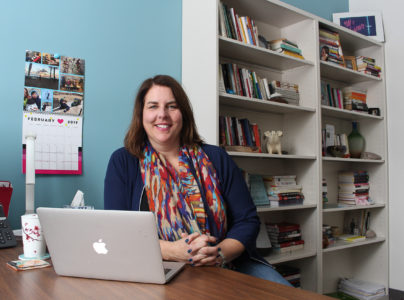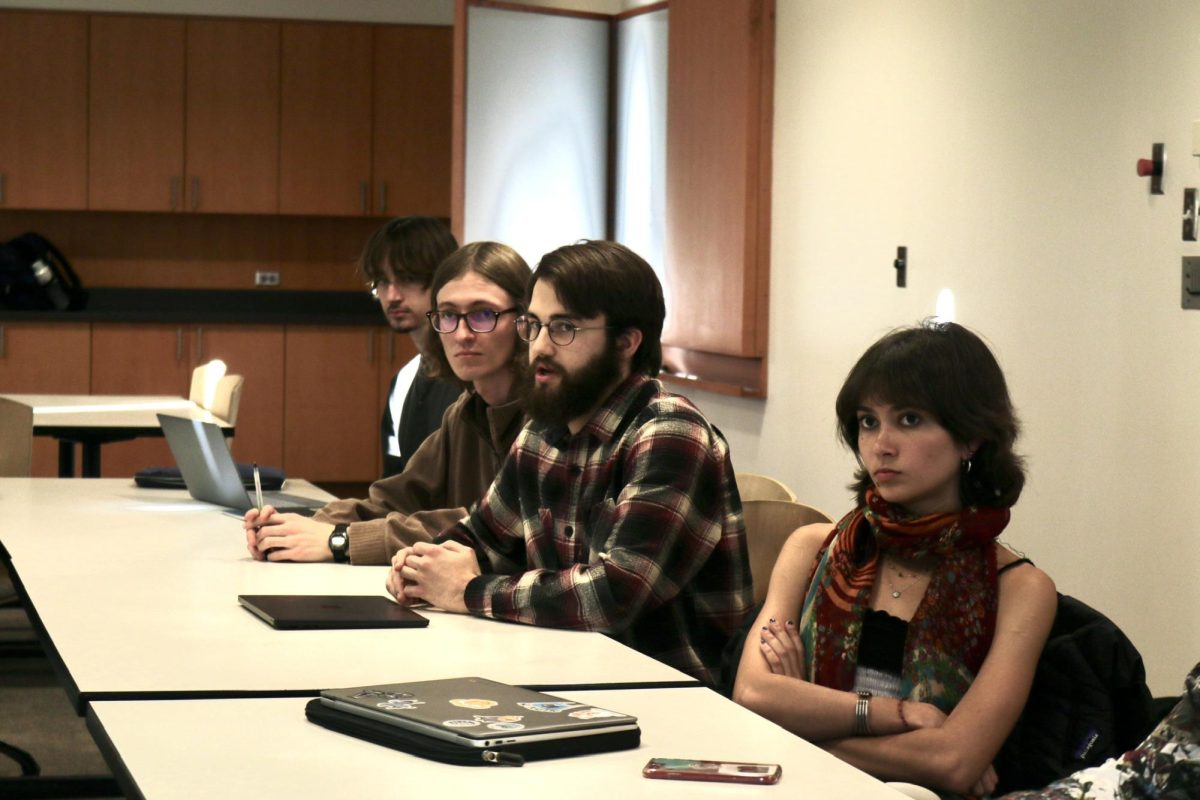As part of Grinnell’s community education, Professor Karla Erickson, sociology, will teach a Bucket Course titled “Driverless Trucks and the Future of Work” at the Drake Community Library. The course will be on Wednesdays from 10 to 11:30 a.m., Feb. 20 to Mar. 13, and interested parties can register online for a fee of $15.
Bucket Courses, presented through the Grinnell Community Education Council, provide an opportunity for members of the community to learn about specialized topics in a series of short lectures.
“As a sociologist, they’re super fun to teach because you get to offer something to kind of a friendly, educated, smart, lay audience. … It’s also been useful in the development of my projects because I’m trying to write basically public sociology that’s available to a wider audience, so I get to kind of try it out on them,” Erickson said.
Through this course, Erickson aims to explore the ways in which machines and rapidly-advancing technologies influence humans socially and in the workplace.
“I’m particularly interested in representation of what machine/human relations ‘should’ be like; … what we’re afraid of when it comes to our relationship to machines. And then I am a labor ethnographer, so I’m really interested in the consequences for labor of artificial intelligence,” she said.
The inspiration for this project came from driverless trucks, which Erickson was initially drawn to because of their potential impact on Iowans. After looking into it further, she realized that the future of machine and human relations is even larger than she had first considered.
Erickson’s latest book project focuses on this topic, and she hopes to gain new perspectives through the students in this course. Because Bucket Courses tend to attract people of all ages, their different experiences with changing technologies over each person’s lifetime will provide an interesting aspect to the class.
Over the course of four lectures, students will think about the technology that has already affected their lives, learn about the social life of machines and predict possible reactions to changes in labor and how humans earn an income. Erickson plans to discuss the balance between potential benefits and dangers that artificial intelligence may provide.
“We’re seeing robots that can do translation better than a human translator, they can win at Go, which is an incredibly hard game, they can win at chess, they can write basic stuff … A lot of the things that we tended to think of as very sacred work, work that really required humans, it’s very confusing where that line is,” she said.
At its core, the course will prompt students to consider what has already changed with technology, what is yet to evolve and how humans can socially address these developments.
“I don’t think that there’s a stopping this wave; I think there’s a navigating it. I’ll be interested to know what kinds of navigation seem more or less reasonable to participants,” Erickson said.



























































